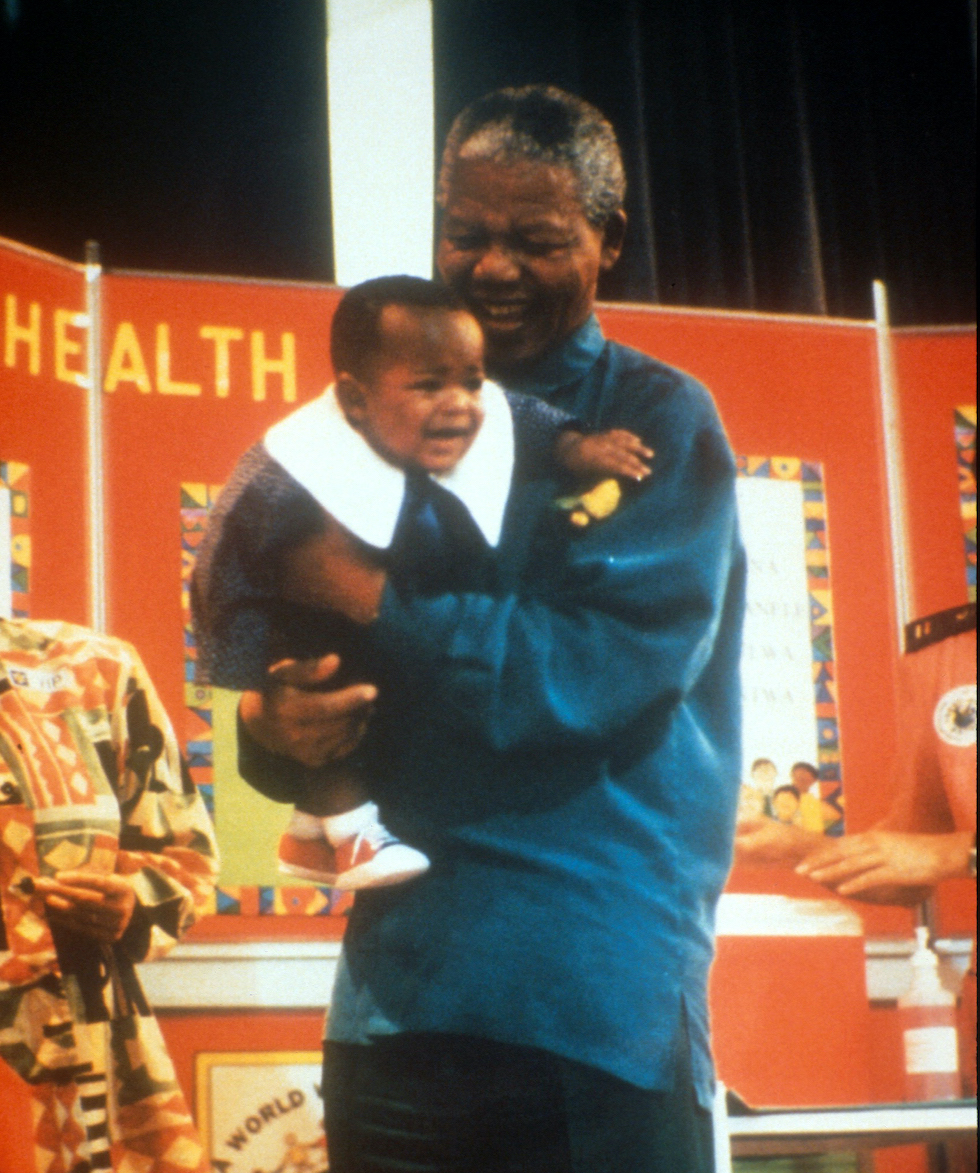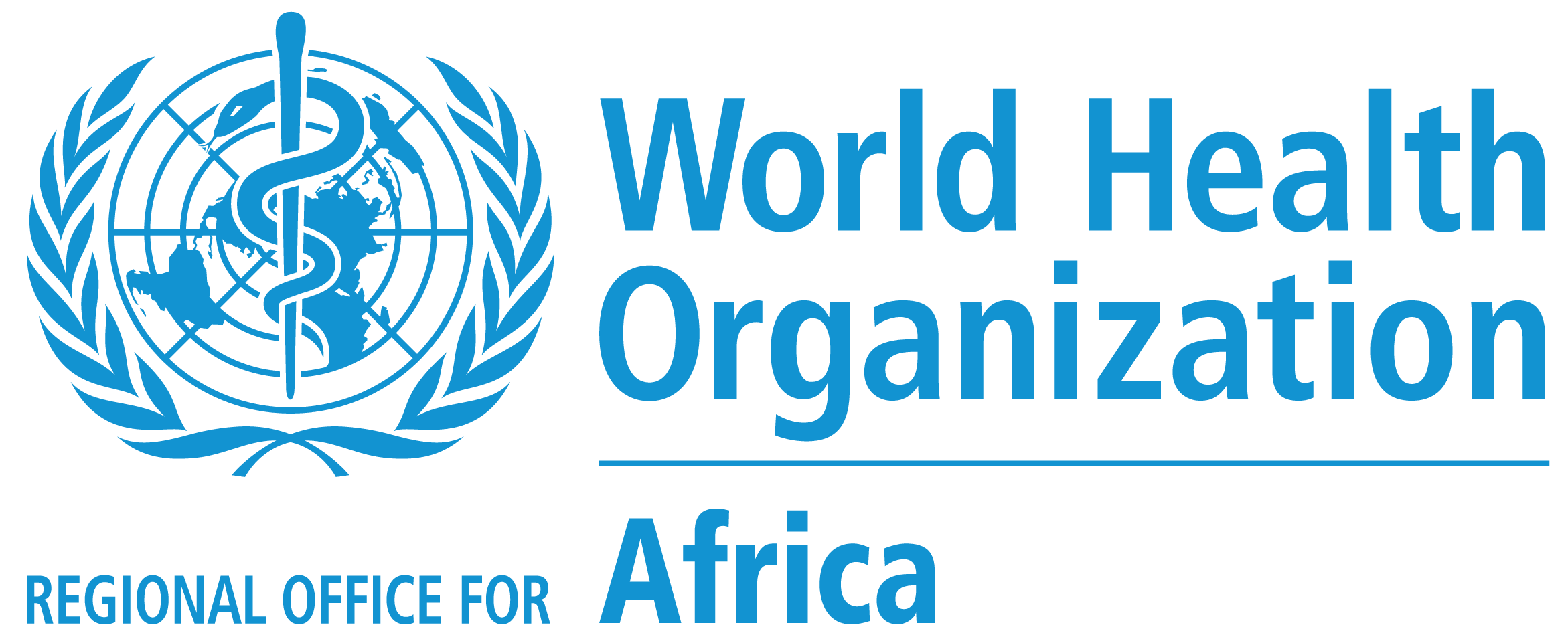Mandela: The leader who helped kick wild polio out of Africa
It is impossible to explain how the African region eradicated wild polio without looking to the ‘Kick Polio Out of Africa’ campaign. Launched in 1996 by the African leader Nelson Mandela with support from Rotary, this campaign was a watershed moment for polio eradication in Africa. It transformed attitudes, galvanised funding and mobilised entire governments and populations. Its impact was then, and remains today, unprecedented.
By the end of the 1990s, countless footballs with ‘Kick Polio out of Africa’ branding bounced around Africa’s school playgrounds, dusty fields and big stadiums. With every bounce they served as a daily reminder of the importance of stopping the crippling disease. The campaign to end polio was everywhere, taken up by Africans with the same level of passion normally reserved for a football game.
At the start of the decade, this level of commitment was almost unimaginable. Despite a global commitment to eradication at the 1988 World Health Assembly, progress in Africa was fragmented. Some countries had made big leaps forward, supported by robust routine immunization programmes already in place. Almost all were battling other national health priorities. Polio was present in most African countries, paralysing an estimated 75,000 children across the continent each year.
Polio survivors play a game of football in Nigeria, 2004 © WHO
A 'Kick Polio out of Africa' football signed by several Rotary leaders used at the ceremony for the first national immunization days in Addis Ababa, 1997 © Rotary International
Polio survivors play a game of football in Nigeria, 2004 © WHO
Polio survivors play a game of football in Nigeria, 2004 © WHO
Polio survivors play a game of football in Nigeria, 2004 © WHO
All of this changed in 1996. First, in July, at a summit of the Organization of African Unity (which later became the African Union) in Cameroon, heads of state from all over the continent unanimously adopted the ‘Yaoundé Declaration’ to eradicate polio from Africa. Polio went from an all-too-often overlooked issue on national agendas to a matter of transcontinental importance.
Second, polio was brought to the global stage when Rotary International approached Nelson Mandela, then South Africa’s president and the continent’s symbol of hope. In August 1996, Mandela, alongside Rotary President Luis Giay, launched the ‘Kick Polio Out of Africa’ campaign, and within months all countries had signed up and donor funding started to soar. Mandela was able to transform the political commitment and unity of Yaoundé into a popular movement that rallied not just politicians and health agencies, but everyone from sports stars to school children.
During a 1997 qualifying match for the 1998 World Cup in Nigeria, soccer teams from Burkina Faso and Nigeria line-up in front of a 'Kick Polio out of Africa' center field medallion. © Rotary International
Volunteer vaccinators in 'Kick Polio out of Africa' t-shirts prepare for a national immunization day campaign in DRC, 2001 © WHO
Vaccines, 'Kick Polio out of Africa' vaccinator boxes and branded materials arrive in DRC for a national immunization day, 2001 © WHO
A billboard sponsored by Rotary's PolioPlus campaign with the 'Kick Polio out of Africa' branding in French used for raising awareness about polio in Bamako, Mali, 2013 © Jean-Marc Giboux/Rotary International
A health worker wears a 'Kick Polio out of Africa' branded apron in French and discusses the importance of polio vaccination during an awareness raising session in the Maradi region of Niger © UNICEF
“‘Kick Polio Out of Africa’ saw a continental shift in attitudes towards polio eradication, after which all heads of state supported national immunization days, and it mobilised entire governments and populations,” says Dr Deo Nshimirimana, who worked with WHO’s polio eradication programme for many years and was previously Director of Immunization and Vaccines with the WHO Regional Office for Africa (WHO AFRO).
With donor funding, governments threw their energy and resources into organizing highly effective eradication strategies, which allowed polio teams to make rapid gains. Dr Pascal Mkanda, WHO Coordinator of the Polio Eradication Programme for the African region, was working with the ministry of health in his native Malawi at the time. “We started seeing fewer and fewer polio cases after we started really doing these campaigns,” he says. According to Mkanda, “it was a moment when we realized it could be done, it was possible to eradicate polio.”
The momentum from the campaign endured well into the 2000s, driving forward polio eradication efforts and other public healthcare priorities. The footballs have long since deflated, but the hope ignited from the ‘Kick Polio Out of Africa’ campaign is still intact. With political will, even the unimaginable is achievable.
As Mandela once said, “When people are determined, they can overcome anything.”

Gallery of Mandela's 'Kick Polio Out of Africa' Campaign
A volunteer polio vaccinator loads ‘Kick Polio out of Africa’ vaccine coolers into a van during a national immunization day in Ghana, 1997. Courtesy of Rotary International
Volunteer vaccinators visit Bredjing refugee camp in eastern Chad, housing over 35,000 refugees from Sudan’s Darfur region, to deliver polio vaccines to refugee children, 2004 © Jean-Marc Giboux
14-year-old Salum Said, who was paralysed by polio in both legs, during a class in Zanzibar town, capital of Zanzibar, 1996. In 1996, over 75,000 children were paralysed each year by wild polio. © UNICEF
‘Kick Polio out of Africa’ branding on vaccinator boxes used during a synchronized vaccination campaign between Angola, Congo and DRC targeting 23 million children, 2011. © Bill & Melinda Gates Foundation
Nelson Mandela gives a child a dose of the oral polio vaccine at a launch of the ‘Kick Polio out of Africa’ campaign in South Africa, 1996 © GPEI
A health worker carries a ‘Kick Polio out of Africa’ vaccine box en route to assist in a national polio vaccination campaign in Freetown, Sierra Leone, during which 330,000 children were vaccinated against polio © UNICEF
‘Kick Polio out of Africa’ branding on vaccinator boxes used during a synchronized vaccination campaign between Angola, Congo and DRC targeting 23 million children, 2011. © Bill & Melinda Gates Foundation
A team of volunteer vaccinators with ‘Kick Polio out of Africa’ cooler boxes have a break during a house-to-house vaccination campaign in northern Kano state in 2004, as part of a series of national immunization days after a resurgence of polio outbreaks © UNICEF
A volunteer vaccinator goes door-to-door during a ‘Kick Polio out of Africa’ national immunization campaign in the Tigray region of Ethiopia in 2004, during which some 100,000 volunteers and health workers vaccinated 21 million children with the polio vaccine © UNICEF
A ‘Kick Polio out of Africa’ vaccination campaign poster in Amharic from Ethiopia © WHO
Volunteer vaccinators in Kananga, DRC go door-to-door and to market places during a vast national immunization campaign in DRC that reached 11 million children in August 2000. Their t-shirts have the ‘Kick Polio out of DRC’ logo in French © UNICEF
A volunteer vaccinator stacks ‘Kick Polio out of Africa’ branded vaccine cooler boxes in preparation for a national immunization day in Kenya, 2004. Courtesy of Rotary International
Cover image: Then Rotary President Luis Giay gives a PolioPlus pin to Nelson Mandela at the launch of the ‘Kick Polio out of Africa’ campaign in South Africa, 1996 © Courtesy of Rotary International, with permission from the Nelson Mandela Foundation


